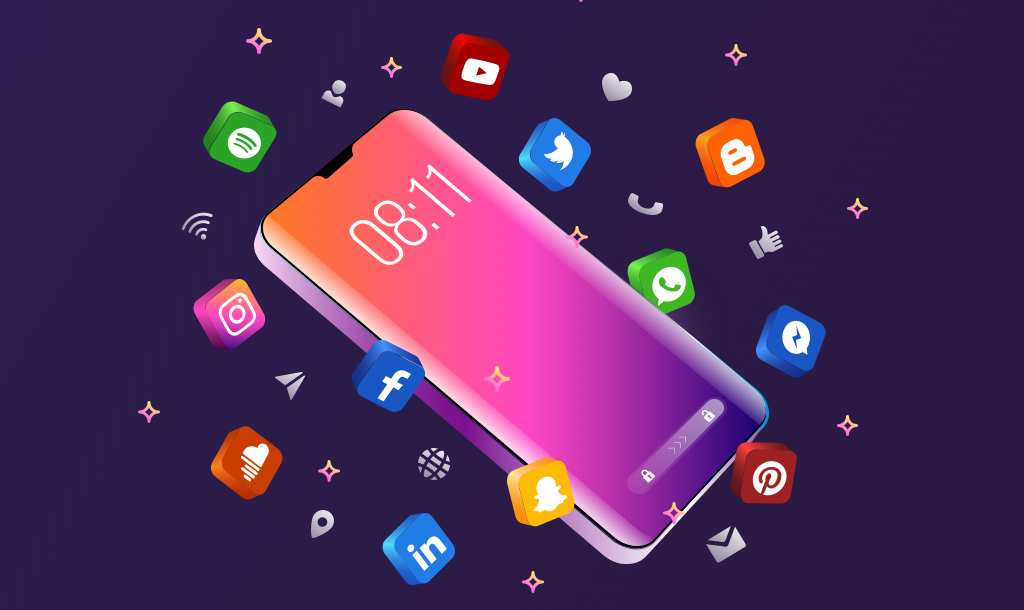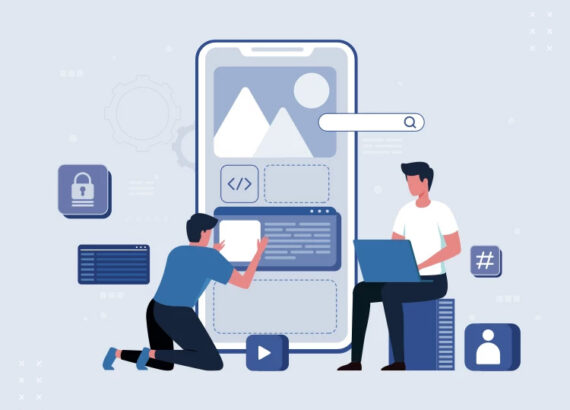Discover the Most Innovative Mobile Apps Changing the Education Landscape
In recent years, these technological advancements have also made their way into the education sector, transforming traditional learning methods and opening up new possibilities for students and educators alike.
With the increasing prevalence of smartphones and tablets, mobile apps have emerged as powerful tools that enhance learning experiences, promote engagement, and offer personalized educational opportunities.
In this article, we will explore the most innovative mobile apps that are changing the education landscape, highlighting their advantages, impacts, and potential future developments. From gasification and interactive apps to personalized learning and communication platforms, these apps are revolutionizing education and shaping the way we acquire knowledge.
Explore the cutting-edge world of mobile apps that are revolutionizing the way we live, work, and play. From productivity tools to entertainment platforms, discover the most innovative mobile apps that are changing the game. Stay ahead of the curve and embrace the future of technology with these game-changing applications.
1. Introduction: The Growing Impact of Mobile Apps in Education
The Evolution of Mobile Apps in the Education Sector
Mobile apps have revolutionized various aspects of our lives, and education is no exception. Gone are the days of traditional textbooks and classroom lectures as students and teachers now have a world of knowledge at their fingertips. The advent of mobile apps in the education sector has opened up exciting possibilities for both learners and educators. From interactive learning tools to personalized study aids, these apps are transforming the way we approach education.
Current Landscape and Adoption of Mobile Apps in Education
The adoption of mobile apps in education has been steadily increasing, with more and more institutions incorporating them into their teaching methodologies. Students and teachers are leveraging the convenience and flexibility offered by these apps to enhance the learning experience. Moreover, educational app marketplaces are teeming with a wide range of innovative apps targeting different subjects and levels of education. This growing landscape of mobile apps in education is reshaping the way we learn and teach.

2. Advantages of Mobile Apps in Enhancing Learning Experiences
Accessibility and Flexibility in Learning
Learning no longer has to be confined within the four walls of a classroom. With mobile apps, students can access educational resources anytime, anywhere. Whether it’s during a commute or in the comfort of their homes, these apps provide a flexible learning experience that fits into students’ busy lives.
Engaging and Motivating Learners
Let’s face it, traditional textbooks can be dull and uninspiring. However mobile apps add a touch of excitement and interactivity to the learning process. With gamified quizzes, interactive videos, and engaging content, these apps make studying more enjoyable and motivate learners to actively participate in their education.
Interactive and Multimedia Learning
Mobile apps harness the power of multimedia to deliver educational content in a visually stimulating and interactive manner. Students can explore 3D models, watch educational videos, and engage in virtual experiments, making the learning process more immersive and memorable.
3. Empowering Learners through Gasification and Interactive Apps
Gamification in Education: Benefits and Success Stories
Who says learning can’t be fun? Educational apps employ gamification techniques to make the learning process more engaging and enjoyable. By incorporating game elements like rewards, challenges, and competition, these apps motivate students to stay focused and achieve their learning goals.
Interactive Apps for Active Learning and Problem Solving
Interactive apps encourage active learning and problem-solving skills by providing students with hands-on experiences. Whether it’s solving puzzles, conducting virtual experiments, or collaborating with peers, these apps foster critical thinking and creativity among learners.
Case Studies: Achievements and Impact of Gamified Education Apps
Numerous case studies have showcased the positive impact of gamified education apps. From improved student engagement to higher retention rates, these apps have proven to be effective tools in enhancing learning outcomes. Students become more motivated, develop a love for learning, and achieve better results.
Get up to 70% Discount on Amazon Electronic Products

4. Personalized Learning and Adaptive Apps: Revolutionizing Education
Adaptive Learning Technology and its Role in Personalization
One size doesn’t fit all when it comes to education, and that’s where adaptive learning apps come in. These apps use intelligent algorithms to analyze students’ learning patterns and deliver personalized content tailored to their needs. Adaptive learning technology is transforming education by catering to individual strengths, weaknesses, and learning styles.
Customized Content and Tailored Learning Paths
With personalized learning apps, students can access customized content and follow tailored learning paths that align with their academic goals. Whether it’s providing additional resources for struggling students or challenging advanced learners, these apps ensure that every student receives the support they need.
Success Stories of Personalized Learning Apps in Education
The success stories of personalized learning apps are inspiring. Students who once struggled with traditional teaching methods have experienced breakthroughs and reached their full potential through these apps. The personalized approach has led to increased confidence, stronger academic performance, and a deeper love for learning.
In conclusion, mobile apps are revolutionizing the education landscape by providing accessibility, engaging experiences, gamification, and personalized learning. As technology continues to advance, we can expect even more innovative apps to shape the future of education. So, whether you’re a student or an educator, it’s time to embrace these mobile apps and discover a whole new world of learning possibilities.
5. Collaborative Learning and Communication Apps for Students and Teachers
Facilitating Collaboration and Communication in the Virtual Classroom
Collaborative learning and communication apps have revolutionized the way students and teachers interact, even in virtual environments. These apps provide a platform for students to collaborate on projects, share resources, and communicate with their peers and teachers. From group chat features to virtual whiteboards, these apps foster a sense of community and teamwork, enhancing the learning experience for everyone involved.
Virtual Learning Communities and Discussion Platforms
Gone are the days of limited classroom discussions. Virtual learning communities and discussion platforms bring students and teachers from all over the world together, providing opportunities for meaningful engagement and knowledge sharing. These apps allow students to participate in discussions, ask questions, and receive feedback from their peers and instructors. With features like forums, live chats, and video conferencing, these platforms enable students to connect with others who share similar interests and foster a deeper understanding of the subject matter.
Enhancing Teacher-Student Interaction through Education Apps
Education apps have not only transformed how students collaborate but have also revolutionized the way teachers interact with their students. With these apps, teachers can provide personalized feedback, track student progress, and even offer one-on-one assistance in real time. The ability to assess student understanding, provide targeted support, and maintain open lines of communication strengthens the teacher-student relationship, leading to improved learning outcomes for students.
6. Upskilling and Professional Development through Education Apps
Lifelong Learning and Skill Development Apps
Learning is no longer restricted to the classroom or a specific stage of life. Upskilling and professional development apps have made it easier than ever for individuals to acquire new skills and knowledge at their own pace. Whether it’s learning a new language, mastering coding skills, or acquiring expertise in a specific field, these apps offer a wide range of courses and learning materials to cater to diverse interests. With interactive lessons, quizzes, and progress tracking, these apps empower individuals to continuously learn and grow throughout their lives.
Professional Development and Teacher Training Apps
Education apps are not only for students; they also play a critical role in professional development for teachers. These apps provide a platform for educators to access training materials, attend workshops, and collaborate with other educators. From lesson planning to classroom management strategies, these apps offer resources and support to enhance teaching practices and improve student engagement and achievement.
Case Studies: Impact and Results of Upskilling Apps in Education
The impact of upskilling apps in education cannot be underestimated. Numerous case studies highlight the positive outcomes and transformative effects these apps have on both individuals and institutions. From improved employability to increased confidence and motivation, these apps have proven to be game-changers in equipping learners with the knowledge and skills needed to succeed in today’s rapidly evolving job market.

7. Overcoming Challenges and Ensuring Accessible Education for All
Addressing Equity and Inclusion in Mobile App-based Education
While education apps offer immense opportunities, it’s crucial to ensure that they are accessible to all learners. Addressing equity and inclusion in mobile app-based education means considering factors such as the digital divide, language barriers, and diverse learning needs. Developers and educators must work together to design apps that are user-friendly, culturally sensitive, and cater to diverse backgrounds and abilities, ensuring that every learner has an equal opportunity to benefit from mobile app-based education.
Accessibility Features and Standards for Education Apps
Accessibility features and standards play a vital role in making education apps inclusive and accessible to individuals with disabilities. These features include options for text-to-speech, closed captioning, adjustable font sizes, and compatibility with screen readers. By incorporating such features and adhering to accessibility standards, education apps can remove barriers and provide equal access to education for all learners, regardless of their abilities.
Strategies to Bridge the Digital Divide in Education
Bridging the digital divide is essential to ensure that every student has access to mobile app-based education. Strategies to address this divide include providing internet access and devices to underserved communities, developing offline learning options, and partnering with community organizations to offer technology resources. It is through these collaborative efforts that we can bridge the gap and create a more inclusive and equitable educational landscape for all learners.
Conclusion
In conclusion, the rapid advancement of mobile app technology has brought about significant changes in the education landscape. With the advantages of accessibility, personalization, and collaboration, these innovative apps have the potential to enhance learning experiences for students of all ages and backgrounds. As we continue to embrace the power of mobile apps in education, it is crucial to ensure equitable access and address any challenges that may arise. By harnessing the potential of these transformative tools and staying abreast of emerging trends, we can create a more engaging, inclusive, and effective learning environment for learners around the globe.

FAQ
1. Are mobile apps suitable for all educational levels?
Yes, mobile apps can be beneficial for learners of all educational levels. There are apps designed for preschoolers, primary school students, high school students, and even higher education and professional development. These apps cater to different learning needs and subjects, offering a wide range of educational resources and interactive features.
2. How can mobile apps enhance personalized learning?
Mobile apps can enhance personalized learning by providing customized content and tailored learning paths. Through adaptive technology, these apps can assess a student’s proficiency level and learning style, and then deliver content and activities that are specific to their needs. This allows students to learn at their own pace, focus on areas where they need more assistance, and explore topics of interest in a personalized manner.
3. What challenges need to be addressed when implementing mobile apps in education?
There are a few challenges that need to be addressed when implementing mobile apps in education. One challenge is ensuring equitable access to technology and internet connectivity, especially for students from disadvantaged backgrounds. Another challenge is the need for proper teacher training and support to effectively integrate apps into the curriculum. Additionally, considerations should be made regarding data privacy and security to protect student information while using mobile apps.
4. What does the future hold for mobile app technology in education?
The future of mobile app technology in education looks promising. As technology continues to evolve, we can expect to see more advanced features such as augmented reality and virtual reality integrated into educational apps, providing immersive and interactive learning experiences. Additionally, artificial intelligence and machine learning algorithms will further enhance the personalization and adaptively of these apps, enabling even more tailored and effective learning opportunities.

Thank you for reading 🙂
Get up to 70% Discount on Amazon Electronic Products
If you want to build your website at an affordable price contact: www.nextr.in
Read this: Top 8 Apps Every Entrepreneur Needs

















